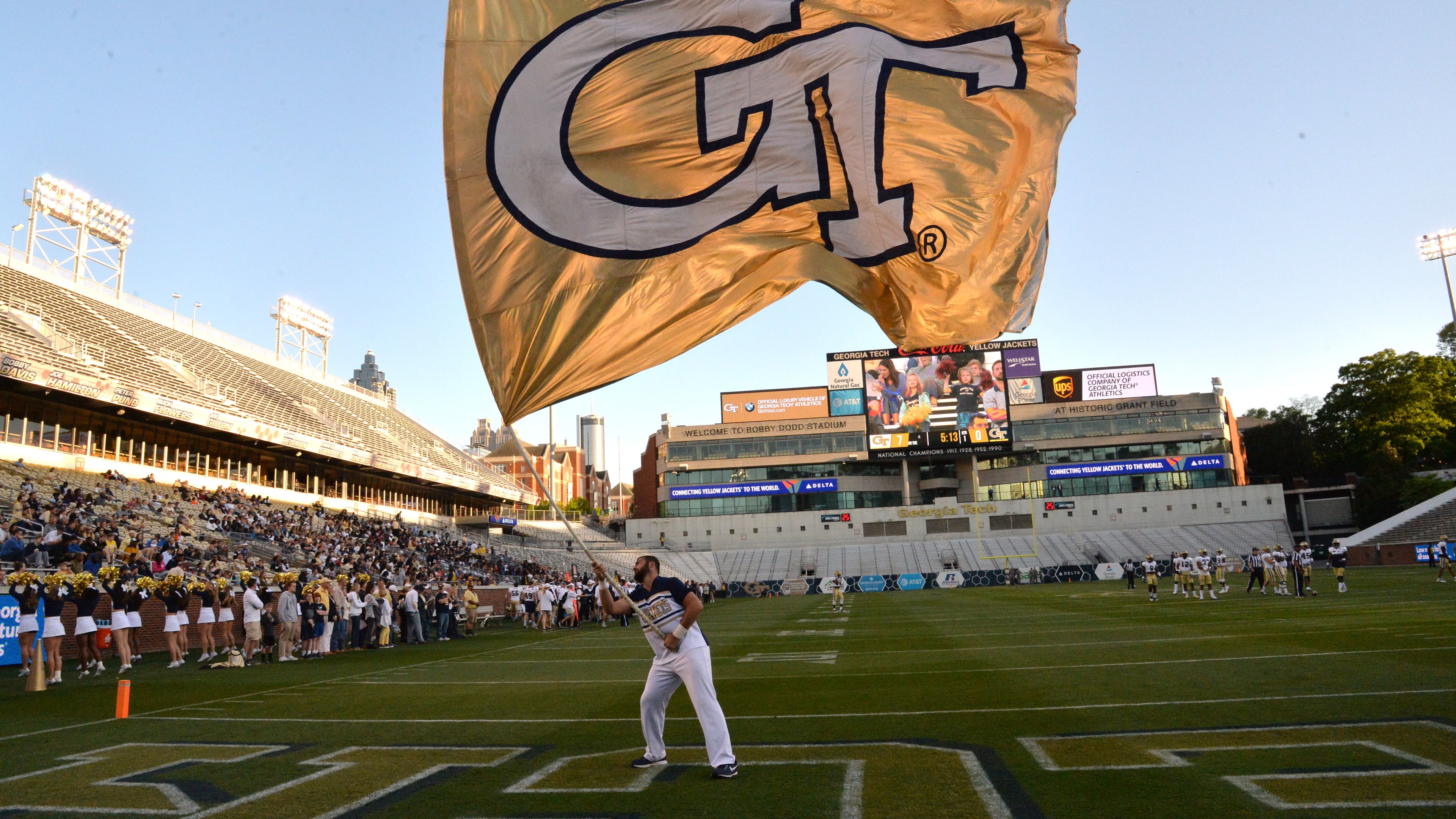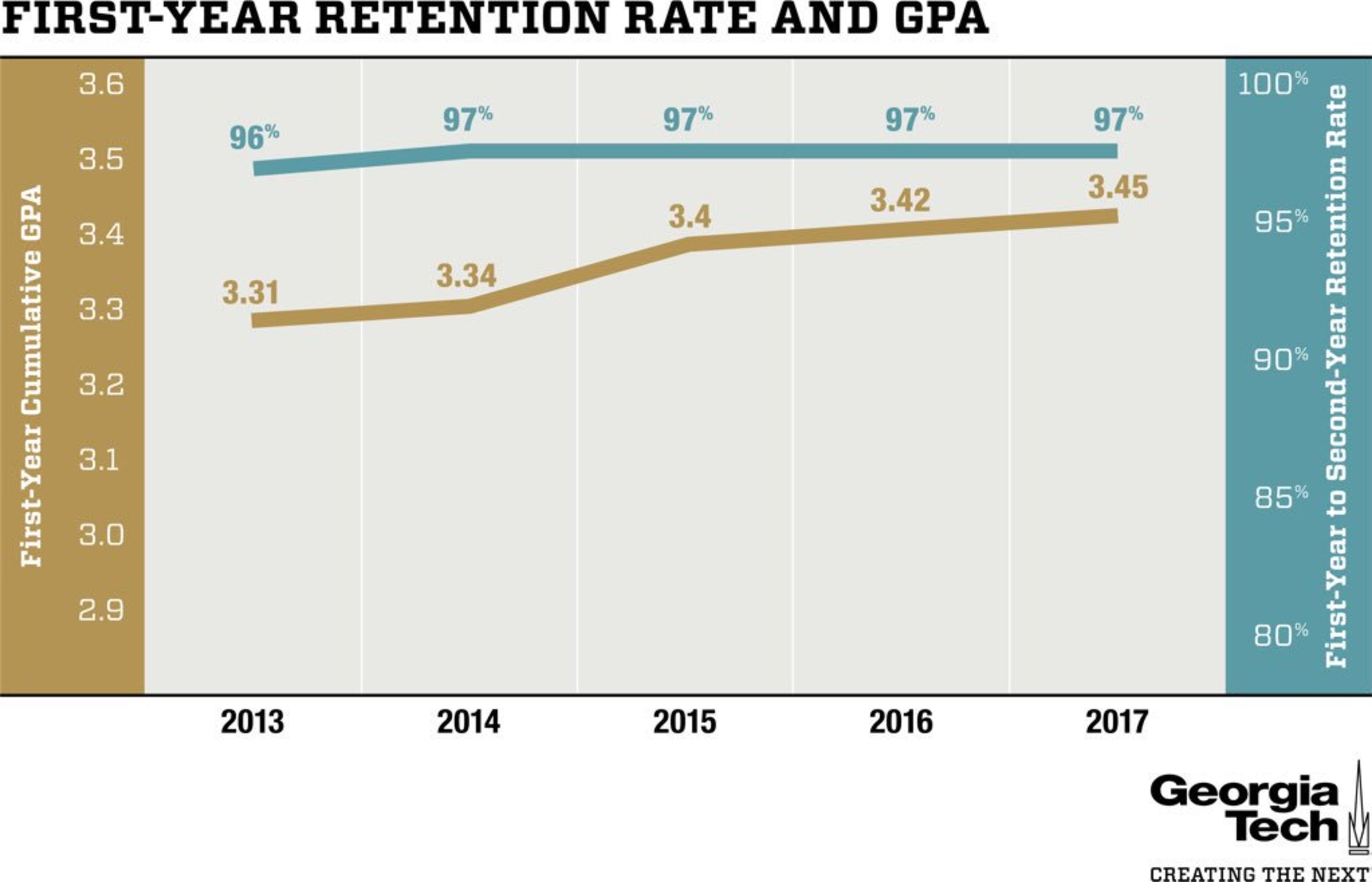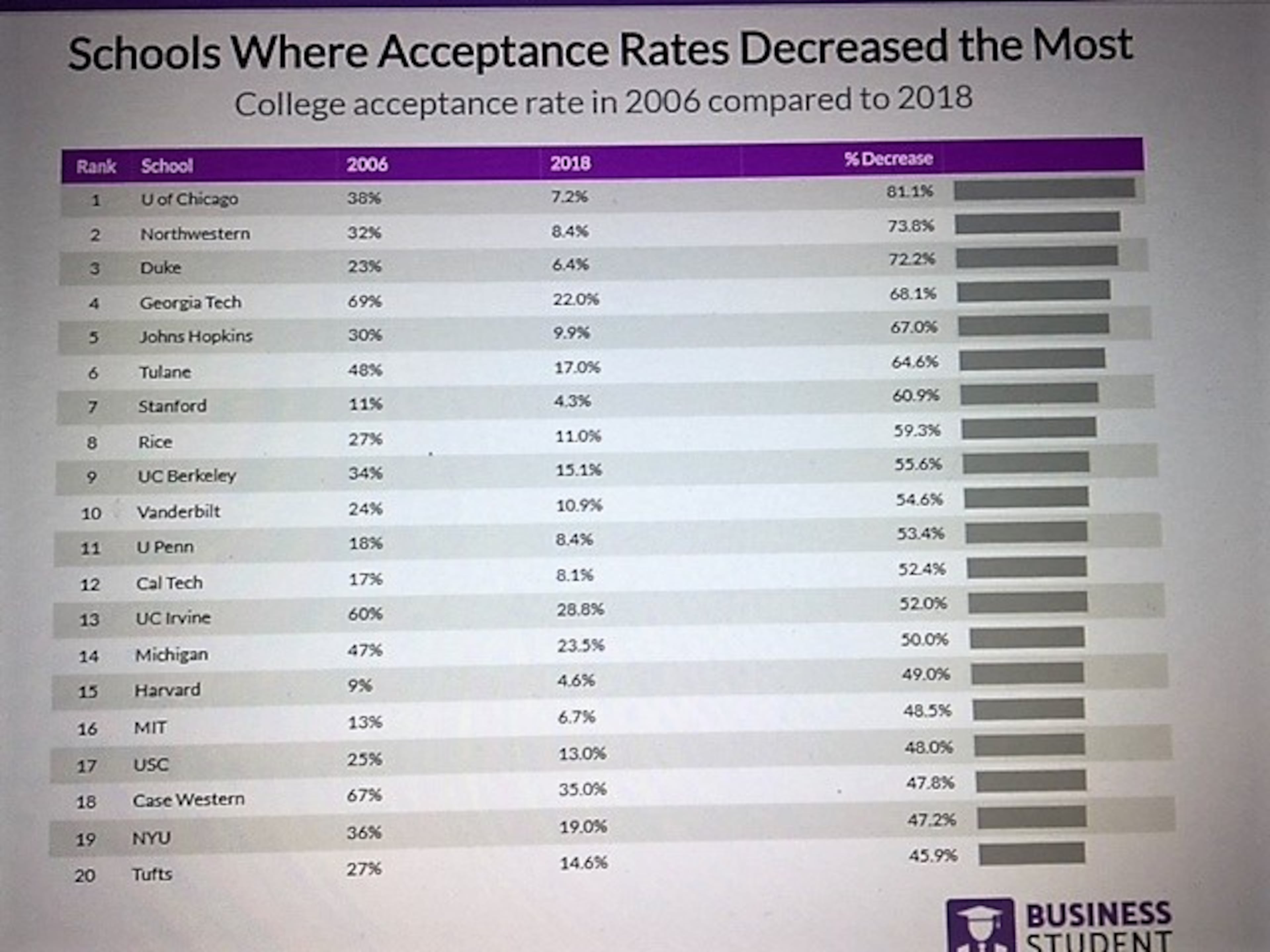Study: Georgia Tech has become a lot harder to get into today

Georgia Tech alums and students are quick to praise their school and defend it when they feel it’s being sold short.
They weren't happy with the latest U.S. News & World Report ratings, which showed the University of Georgia catching up in the national standings with Tech.
Tech loyalists pointed out what they considered a fairer representation of where UGA stood in relation to Tech, the recent 2019 Wall Street Journal/Times Higher Education College rankings, which rated Tech the 60th best college out of 1,000 public and private campuses and UGA the 240th.
The Wall Street Journal/Times Higher Education rankings evaluate campuses on 15 indicators in four areas: outcomes, resources, engagement and environment. Outcomes account for 40 percent of the weighting and measure such factors as the salary graduates earn.
The WSJ/Times rankings said Tech grads earn, on average, nearly $75,000 10 years after graduation. In comparison, UGA grads earn an average salary of $47,433 a decade post-graduation. (UGA is gaining in the poll; last year it ranked 261st. Tech, on the other hand, was ranked 53rd last year, falling seven places this year. )
In the U.S. News & World Report 2019 Best Colleges ranking of more than 1,800 schools across the country, Georgia Tech was ranked the 8th best national public university in the country, tied with the University of Florida. Tech ranked #35 among all national universities, including private and public.
In the U.S. News rankings, the University of Georgia jumped three spots and earned the highest ranking in its history, sharing the #13 slot in top publics with the University of Illinois Urbana-Champaign. It ranked 46th among national universities.
Speaking of rankings, Tech makes its way to the top of a new list this week, one that will not reassure high school seniors waiting to learn if they've been accepted. Tech has become much harder to get into, according to a new analysis by BusinessStudent.com.
The website reporting staff found 2018 admission rates among the top 51 colleges in America dropped nearly 40 percent since 2006, and Georgia Tech is among the campuses with the sharpest declines in its admission rate.
In 2006, Tech’s admit rate was 69 percent; last year, it was 22 percent, according to the study.
Georgia Tech noted it experienced a surge in applications since joining the Common App in 2013, as have many colleges across the country. (Using one application, students can apply to more than 700 member colleges and universities that accept the Common App.)
A Tech spokeswoman also said the admit rate for Georgia residents, which was 37 percent last year, is higher than the out-of-state rate. (See rates here.)
Also, she said Tech’s first-year GPA and retention rates remain strong.

According to the study’s overall observations about winning admission to the 51 schools:
-In 2006, the average admissions rate was 35.9% and in 2018 it has plummeted to 22.6%. This is a remarkable 37% decrease in admission rates.
-48 of the 51 schools looked at are harder to get into today.
-Only two schools were easier to get into today: William and Mary and Syracuse
-The10 Sharpest Declines: 1) University of Chicago, 2) Northwestern, 3) Duke, 4) Georgia Tech, 5) Johns Hopkins, 6) Tulane, 7) Stanford, 8) Rice, 9) UC Berkley, 10) Vanderbilt.

The site addresses why it is so much harder to get into top rated colleges and universities now:
First, there is some indication that the average applicant applies to more schools today than in the past. Next, there is increased global demand for spots at top American schools. With the rapid development of Indian and China, there are more parents in these countries who want to send their kids to the best schools in the world, most of which are located in the United States.
Lastly, the financial returns from attending to top schools in the country continue to increase, even while college on the whole may not be as good a deal as it once was. Put differently, in a highly competitive global economy, having a degree from Harvard is extremely valuable, even if it cost you a lot money.
On the other hand, a degree from an equally expense school without the prestige of Harvard may not be worth the mountain of debt. The result? More applications for schools like Harvard.

